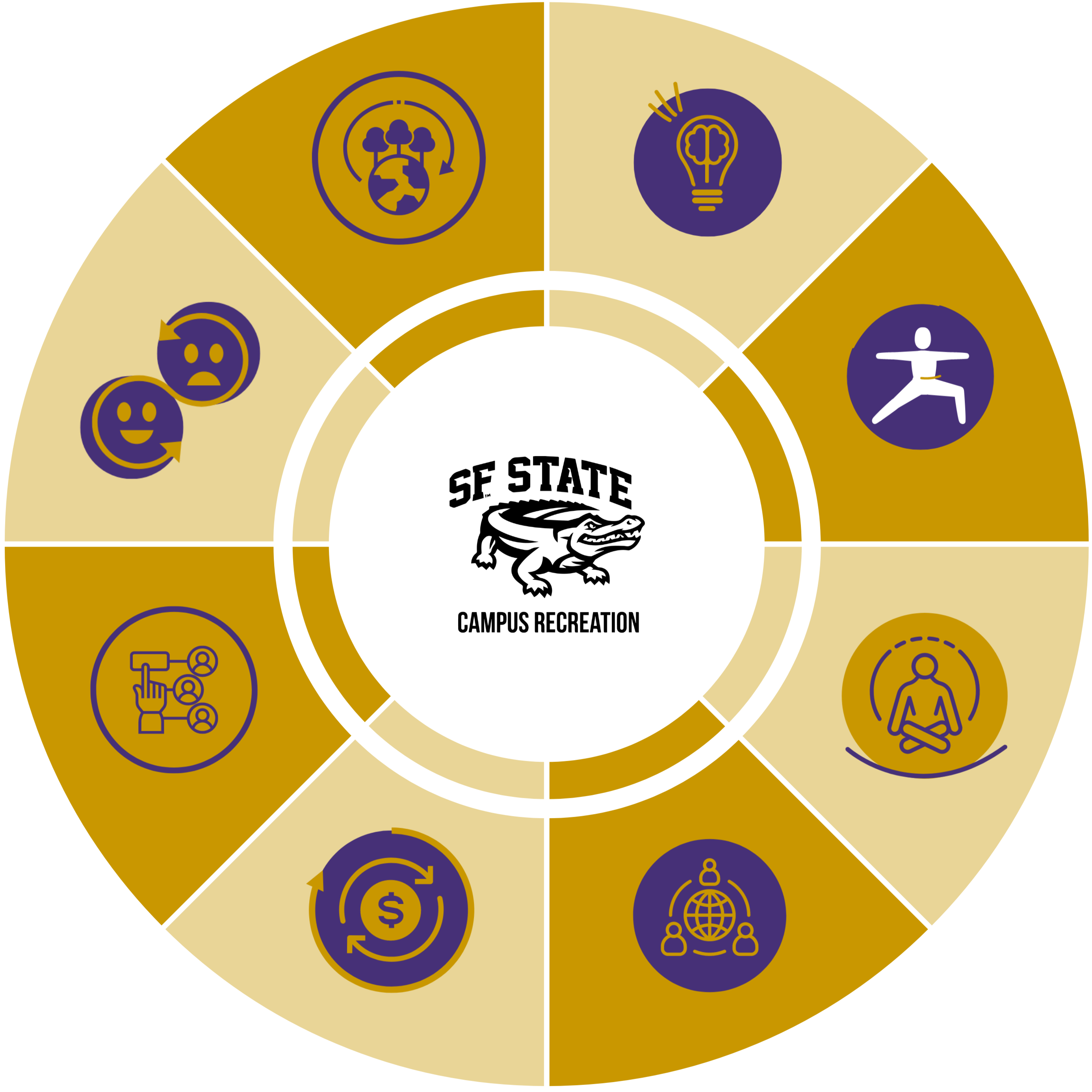
The wellness wheel illustrates a wellness model with eight dimensions: social, physical, emotional, occupational, spiritual, intellectual, environmental, and financial. All of the dimensions are interconnected and important to a well-rounded and balanced lifestyle. It reminds us we need to work in different aspects of our lives to increase our sense of well-being, focusing on just one area is not enough. When you lose balance within or between dimensions of the wheel, your sense of well-being decreases, and you can experience distress. For example, it can be easier to feel emotionally balanced when our sense of social connection or physical wellness are maintained.
Using the wellness wheel
Learn about each dimension of wellness and related resources to help you take action:
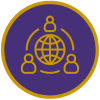
What is it?
- Emotional connections and healing interactions with others.
- Meaningful relationships and interactions with others help you feel you are part of a greater community and not alone.
- The quality of our relationships and our ability to interact with others in positive and meaningful ways.
Resources to maintain and restore your well-being:
- Feeling emotionally connected and having meaningful interactions is healing!
- Article: How to build meaningful connections
- LGBTQ+ Culture: Visit the Queer & Trans Resource Center to find real-time support and connection with the LGBTQ+ community at SF State.
- If you’re facing an issue that is affecting your ability to succeed at SF State, you can get help from a Student Advocate. Email the office to get in touch with an advocate who can remotely provide assistance and support.
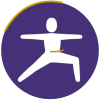
What is it?
- Taking care of your body – involving physical activity, making sure you have a balanced diet, and increasing awareness of physiological signs of stress.
- Health and safety, movement, nutrition, and sleep
Resources to maintain and restore your well-being:
- Physical exercise can be anything that makes your body move.
Health and safety
- Have a health concern? The Student Health Center medical clinic is available to all students. The health center gives you access our highly skilled providers from the comfort of your home. Virtual visits is an easy way to connect with campus health resources, even though you might not be in San Francisco. Make an appointment by calling 415-338-1251 or visiting the website.
- You might use nicotine products to cope with stress from school, work, or family expectations. The Student Health Center’s tobacco and vaping cessation counselors can help you kick the habit. Services are free for all SF State students.
Movement
- Regular exercise routines on YouTube (there are lots of options!). Try a Group Fitness Class or check out P.E. with Joe.
- Practice relaxation exercises to manage the physical symptoms of stress.
- Get outside! Take a daily walk or try jogging.
Nutrition
- Health Promotion and Wellness can help you take charge of healthy eating. Make an appointment through the Nutrition Clinic to meet with a Registered Dietitian Nutritionist
- There are lots of online tools to help you make the best food selections based on your dietary needs and preferences. Check out MyPlate.
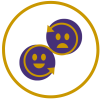
What is it?
- Has to do with your emotional life - being aware and validating your feelings and emotional reactions to different situations.
- Includes your ability to cope with stressors and difficult circumstances.
- Resilience in times of uncertainty.
Resources to maintain and restore your well-being:
- Practice self-compassion
- Pursue hobbies and interests
- Practice acceptance
SF State Resources
- Make a 30-minute virtual appointment with a Counseling and Psychological Services (CAPS)counselor. Schedule by calling 812-855-7688.
- The Equity Programs & Compliance Department provides support to students who are impacted by sexual assault, harassment, discrimination, relationship violence, stalking, or other threats to personal safety. Get in touch with a Confidential Victim Advocate (CVA) by email or call (415) 338-2032
- SF State's Health Promotion & Wellness offers a safe, judgment-free space for drug and alcohol useand recovery support through co. To connect with the team, call 812-856-3898 or email.
Community Resources
- Community Behavioral Health Services provides mental health and substance use disorder treatment, education and support to communities. Get in touch by calling 800-355-6310.
- Zuckerberg San Francisco General Hospital offers a wide range of services to support people with behavioral, psychiatric, and psychological needs. Learn more by calling 800-248-1199.
- SF Services provides shelter, advocacy, housing, and legal services to survivors of domestic/dating violence, human trafficking, and sexual assault. Reach the 24/7 crisis line by calling 988.
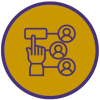
What is it?
- Has to do with making career and professional choices that could help you build an individual sense of fulfillment, and at the same time feeling you are contributing to the general society.
- Contributing to your unique talents
Resources to maintain and restore your well-being:
- Keep perspective. One of the main characteristics of resilient people is that they maintain a “whole picture” perspective
- Here are some tips to foster and develop your resiliency
- Continue to reach out to your academic and career advisors
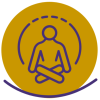
What is it?
- Being a part of the common good.
- Purpose and living a life that has your values as the main compass to make decisions and choices.
Resources to maintain and restore your well-being:
- Viktor Frankl. This psychiatrist created Logotherapy after he survived the horrors of a concentration camp. His insights about finding purpose in the middle of adversity are inspiring, validating, and empowering.
- Meditation can help reduce stress and calm anxiety. Try one of these free mobile apps to get started: Breathe2Relax, Headspace, Calm.
- Get a coloring book
- Yoga
- Practice positive self-talk and thinking

What is it?
- The ability to engage in creative and critical thinking.
- Placing value on learning and intellectual curiosity.
Resources to maintain and restore your well-being:
- Create a soothing workstation
- Contact classmates and set up study sessions
- Contact your instructor to problem-solve obstacles
- Research topics that pique your interest
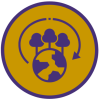
What is it?
- An understanding of the environment in a comprehensive way.
- It includes your immediate physical environment, as well as your community and broader environment.
- Making your workspace work for you.
Resources to maintain and restore your well-being:
- Create a calming home environment
- Engage with nature through a walk or spending time outside
- Explore new areas within San Francisco

What is it?
- Current financial situation and resources.
- Navigate through difficult times.
Resources to maintain and restore your well-being
- Problem-solving out loud with a supportive person can help decrease overwhelming feelings triggered by fear.
- Explore how you can help others! Solidarity is healing.
- SF State x iGrad Financial Wellness
- SF State Basic Needs has funding available to assist students who qualify and are facing a critical financial crisis.
Are you in need of food resources?
- Feeding America: Find your Local FoodBank.
- Gator Groceries: SF State's on-campus food pantry for students is open!
- SF/Marin Food Bank: San Francisco's community food pantry.
Any questions, comments or concerns can be directed to our Wellness Student Leaders at crdwell@mail.sfsu.edu or our Fitness and Wellness Coordinator Sabrina Sousa at ssousa@sfsu.edu.
